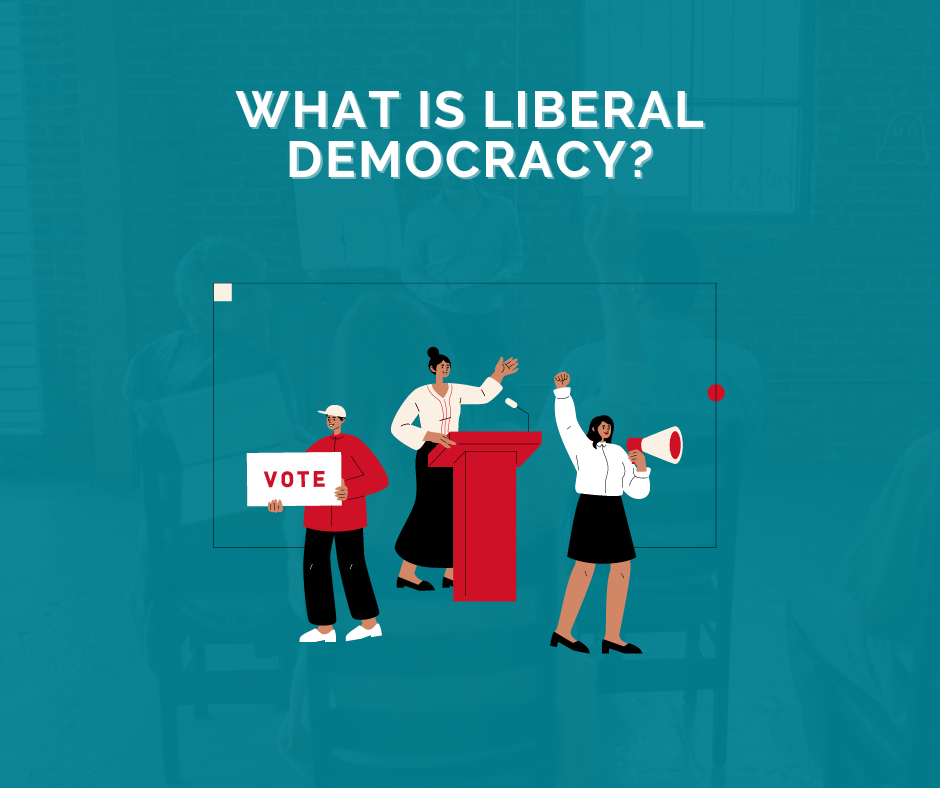
In modern democracies, power is limited. This means that the existence of laws limits the possibility of arbitrary rule in modern democracies.
Contemporary democracies are therefore characterised by the rule of law – the principle of legality and action according to clear and predictable procedures, with no room for arbitrary government action.
In discussions about contemporary democracies, we often find that these democracies are called liberal. The term liberal comes from the word liberties, which means ‘freedom’, so liberal democracy means a form of democracy based on the rule of law and the protection of certain freedoms of individuals.
Liberal democracies were created by merging two different traditions, liberal and democratic, where these two traditions have different fundamental values at their core. The liberal tradition emphasises the importance of individual rights and freedoms, while the democratic tradition emphasises national sovereignty and the equality of citizens. The democratic tradition stems from the idea that the highest power in a political community should rest in the hands of the people who, directly or through their representatives, decide on all important issues. The liberal tradition is based on the idea that, through constitutional and legal restrictions, individuals should be protected from the arbitrary use of power, even in cases where that power derives from the majority will of the people. In order to prevent the will of the majority from jeopardising the rights of those who remain in the minority, the democratic principle was supplemented by the principle of mandatory protection of the fundamental rights and freedoms of individuals. We denote modern democracies, therefore, by the syntagm of liberal democracy, where the democratic segment emphasises the sovereignty and political participation of citizens, and the liberal emphasis is placed on the rule of law and the protection of individual rights and freedoms. The term liberal in the phrase “liberal democracy” does not mean that the government in a democracy must follow the political ideology of liberalism.
Connecting the two traditions means that in contemporary liberal democracies, there are rights (for example, the right to life, to freedom, etc.) that the majority, no matter how dominant, must not question. These rights and freedoms are most often incorporated into constitutions and protect citizens from arbitrary actions of the authorities. They set a limit up to which the will of the majority can be implemented to the detriment of the rights of individuals, as well as minorities in society.
Sources:
Šalaj, B., Hoffmann, D. & Horvat. M. 2018. Edukacija za građansku pismenost Gonga: Politička pismenost, Zagreb, Croatia. Retrieved from: https://gong.hr/wp-content/uploads/2021/05/PolitickaPismenostprirucnik_revizija.pdf
Šalaj B. 2009. Politička pismenost: demokracija i aktivno građanstvo. Obje strane demokracije. Zagreb, Croatia. Centar za edukaciju, savjetovanje i istraživanje. Retrieved from: https://www.cesi.hr/wp-content/uploads/2021/09/obje_strane_demokracije.pdf